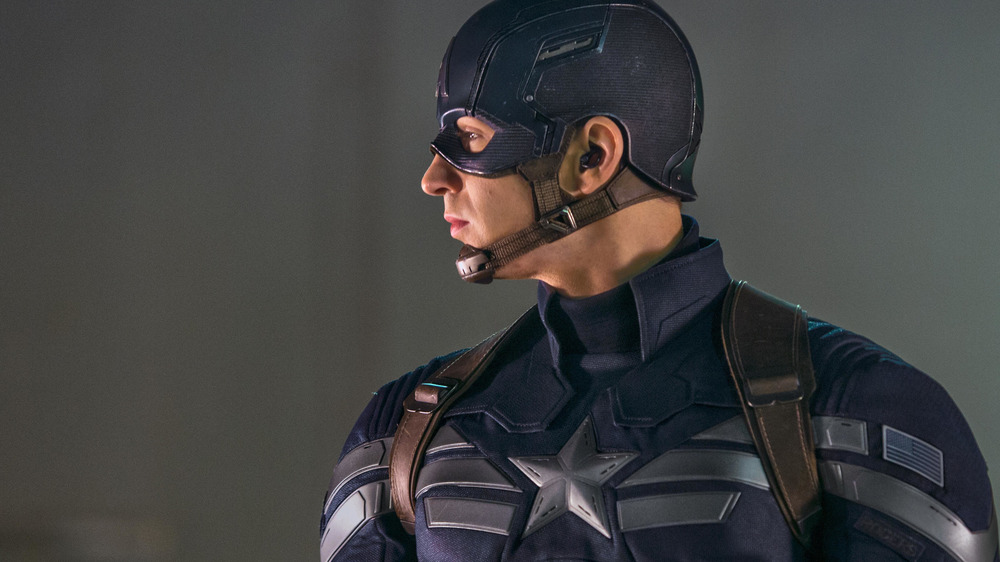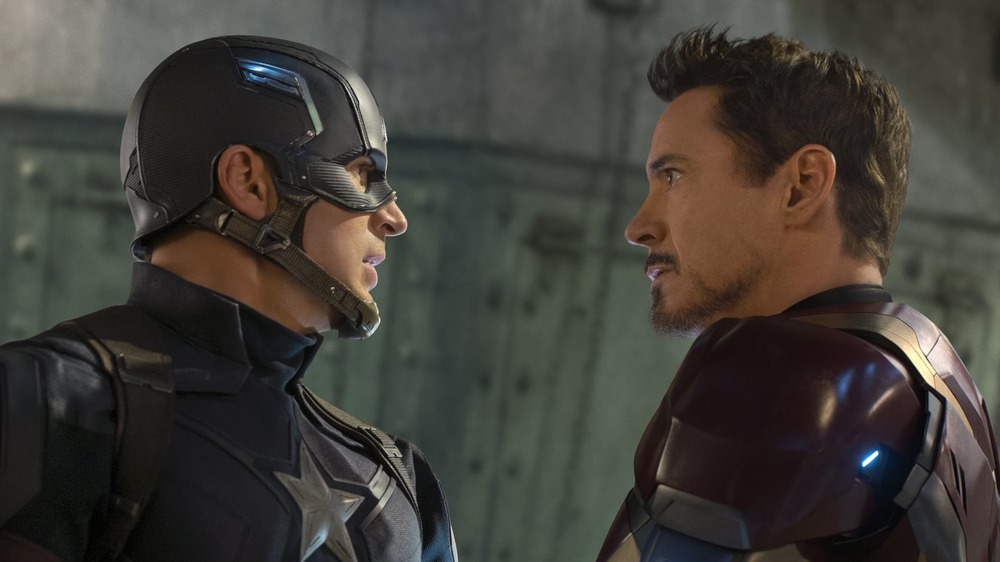The Big Flaw That Almost Cost Captain America Everything In The MCU
The MCU's Avengers are a talented bunch of superheroes, but they all have issues. Whether it's Natasha Romanoff, AKA Black Widow, who has a boatload of trauma from her difficult past which fuels her distrustful nature, or Bruce Banner's low confidence and anger, which creates the uncontrollable Hulk, these flaws affect the way the Avengers work together and the success of their missions. But one Avenger fans might not initially consider a very flawed person is Steve Rogers, commonly known as Captain America. Despite his all-American appearance, unbendable courage, and stalwart compassion, Rogers has just as many issues as the rest of his colleagues. In particular, one major flaw has continually held him back, and it's likely the reason he can't lift Thor's hammer in Avengers: Age of Ultron.
Rogers becomes a super-soldier in the 1940s at the height of World War II, intended to be the weapon that will stop the war and Hydra's villainous plans. After sacrificing himself in 1945, he wakes up in the modern world with nothing to tether himself to. When he is introduced to the Avengers, he believes he's found his place in the world as the leader of the group. He was, after all, essentially created to protect all that's good in the world: Why wouldn't he be the perfect leader? Well, for starters, he may be a super-soldier but he's still a human being with faults, and his main one is his flawed sense of self-worth.
Captain America's fatal flaw is his ego and need to be the leader
In the lead-up to Captain America: Civil War, Steve Rogers' high sense of self-importance is on full display, and it affects the team in multiple ways. His personal belief that he should always be the leader of the Avengers leads to many clashes with Tony Stark, AKA Iron Man, who would prefer to make these sorts of big decisions himself. Captain America: Civil War is where this conflict and tension all comes to a head. On the surface, the movie is about the debate on superhero registration, but it's way more personal for Rogers and Stark. Both have justified reasons for wanting and not wanting to sign the Sokovia Accords: Stark, rattled by the rise of Ultron, wants to secure the safety of the vulnerable public, while Rogers seeks to defend the freedom of superpowered individuals.
Ultimately, the reason they end up fighting comes down to Steve Rogers. Rogers doesn't trust Stark or the United Nations' decision making over his own. His belief that his own leadership is superior causes him to go on the run and drag his friends along with him. Add in Rogers' allegiance to Bucky Barnes, plus Rogers not telling Stark about his parents' deaths, and he completely ruins his relationship with Stark. This brutally fractures the Avengers and proves that he doesn't deserve to be in charge. Thankfully, this crisis also leads to Rogers taking a hard look at his own failures. He goes on to learn from them in Avengers: Infinity War and Avengers: Endgame, where his self-doubt and reluctance to lead actually make him a great leader, and worthy of wielding Mjölnir at last.

